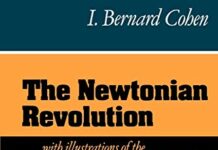
Ebook Info
- Published: 2006
- Number of pages:
- Format: PDF
- File Size: 0.94 MB
- Authors: I. Bernard Cohen
Description
From the pyramids to mortality tables, Galileo to Florence Nightingale, a vibrant history of numbers and the birth of statistics. The great historian of science I. B. Cohen explores how numbers have come to assume a leading role in science, in the operations and structure of government, in marketing, and in many other aspects of daily life. Consulting and collecting numbers has been a feature of human affairs since antiquity―taxes, head counts for military service―but not until the Scientific Revolution in the twelfth century did social numbers such as births, deaths, and marriages begin to be analyzed. Cohen shines a new light on familiar figures such as Thomas Jefferson, Benjamin Franklin, and Charles Dickens; and he reveals Florence Nightingale to be a passionate statistician. Cohen has left us with an engaging and accessible history of numbers, an appreciation of the essential nature of statistics.
User’s Reviews
Opiniones editoriales Review “This book will inform and enlighten you. . . . [Cohen] paints a vivid picture of the rise of statistics.” ― Tom Korner, American Scientist”Brief, lively, and highly entertaining.” ― William Grimes, New York Times About the Author I. Bernard Cohen (1914―2003) was Victor S. Thomas Professor, Emeritus, of the History of Science at Harvard University, where he taught from 1942 to 1984. He was the first American to receive the degree of Ph.D. in the History of Science. He was the author of many books, including Science and the Founding Fathers: Science in the Political Thought of Thomas Jefferson, Benjamin Franklin, John Adams, and James Madison; The Science of Benjamin Franklin; Revolution in Science; The Newtonian Revolution; The Birth of a New Physics; and, with Anne Whitman, Isaac Newtonís Principia: A New Translation of Newtonís Mathematical Principles of Natural Philosophy. He edited several series of works, including Harvard Monographs in the History of Science, Three Centuries of Science in America, and the ongoing Studies & Texts in the History of Computing. He was a Fellow of the American Academy of Arts and Sciences, the American Association for the Advancement of Science, the Royal Astronomical Society, the British Academy, and the Accademia Nazionale dei Lincei.
Reviews from Amazon users which were colected at the time this book was published on the website:
⭐Explains the awe that the new science of Galileo, Kepler and Newton, based on math, created in the mind to the following generations. Franklin, Jefferson, Malthus, Darwin and Nightingale were all focused on the new power of numbers.Shows the huge benefit to society when statistics are used to solve problems; even though the causes are unknown. Smallpox and sanitation are two good examples.1830’s Quetelet, a Dutch statistician, wrote on his analysis of society. He found amazing regularity. He wrote 1842 , “society prepares the crime and the guilty person is only the instrument by which it is executed”. He wrote a book entitled “Social Physics.”This prepared the way for the debate on free will.Page 144, “Comte, a French intellectual, believed in pyramid of knowledge, with mathematics is the base, physics built on mathematics, then chemistry, then biology, and finally the crown of knowledge, sociology”Cohen finishes with nightingale and her use and view of number. Referring to Quetelet, “To Florence Nightingale his work represented the beginning of the understanding of the relationship of God to man. She saw the book is a religious work – “revelation of the will of God” ” page 171.”More importance was nightingale’s belief that statistics revealed the relationship of God to man, and the character of God, if not his essence. . . The laws of God, those of the physical world and those governing man, could be found out by experience or by research, including statistical research. She believed that it was the duty of mankind to do so, so that man could act in accordance with the divine plan and help to bring mankind to perfection.” Page 173Appears to be a good approximation of many people today. Nightingale was converted to worship number even though a devout believer. Not that unusual. Interesting explanation of how this has happened.See the book ‘the end of Poverty’ by Jeffery Sachs and then ‘the Idealist: the quest to end Poverty’ by Nina Munk.Secular salvation does not have evidence to support its claims. Comte, St Simon, Napoleon, Robespierre, Marx, Mussolini, Stalin, Hitler, Pol Pot, Robert Owen have all failed in their goal of using science to bring happiness.
⭐
⭐This book was written by my late husband, IB Cohen, professor emeritus at Harvard University where he obtained his bachelors and doctoral degrees and taught for 60 years. He formulated this book over his many years of teaching and its original title was to be the importance of numbers in everyday life over the past two centuries. He died within 2 weeks of sending this book to press so wasn’t able to be a part of the editing. The forward written by one of his former students explains this. this is a historical review of how numbers were used and the people who studied and observed social phenomena by using statistics. In particular he tells of Florence Nightingale’s use statistics to show that contagion was the cause so many victim deaths during The Crimean war. Their are many other stories reflecting on this and other uses of Numbers.
⭐
⭐There are many well-written books on the history of mathematics. They differ in structure, focus, and target audience, but they essentially cover the same material as each other. This is the only pop book I found on the history of statistics.I teach a high school algebra and statistics class, and I have my students do biographies of mathematicians. People like John Graunt, Adolphe Quetelet, and Florence Nightengale, who may get brief mentions in other books, find the spotlight on them and their lives’ work in this book. Because of this project, I have become familiar with the body of mathematical historical and biographical literature, and I have not come across anything that remotely shares the focus of TRIUMPH OF NUMBERS.As we move to the increasingly data-driven society outlined in Ian Ayres’ SUPERCRUNCHERS. I. B. Cohen has written an important book by outlining of the development of data analysis.
⭐
⭐OK, I admit being a nerd; at least when it comes to numbers. My wife thinks anything related to numbers pulls my interest away from all else. Untrue. However, she does have a point. A book this well written about how numbers have had such a positive impact on us is worth a read. Even by those who think numbers are intimidating.
⭐
⭐This short book discusses the history of the use of numbers to describe the world. The author starts off with a discussion on how numbers began to be used to describe physical items. Eventually, the discussion focuses mainly on the evolution of the use of numbers in the social sciences – hence, the birth of statistics. The book contains some fascinating information on how social statistics evolved, with an entire chapter devoted to Florence Nightingale. It should be emphasized that the focus is mainly on how numbers came to be used and not necessarily on the actual results obtained; thus, if the reader is expecting to see a discussion of the results, he or she may be disappointed at times. But this is a minor shortcoming. The book is well-written and clear. The author (deceased prior to the book’s publication) was a well-seasoned expert on the history of science with a good number of publications to his credit.
⭐
⭐A compelling review of how counting has created history and changed our lives for the better.”
⭐
Keywords
Free Download The Triumph of Numbers: How Counting Shaped Modern Life in PDF format
The Triumph of Numbers: How Counting Shaped Modern Life PDF Free Download
Download The Triumph of Numbers: How Counting Shaped Modern Life 2006 PDF Free
The Triumph of Numbers: How Counting Shaped Modern Life 2006 PDF Free Download
Download The Triumph of Numbers: How Counting Shaped Modern Life PDF
Free Download Ebook The Triumph of Numbers: How Counting Shaped Modern Life


